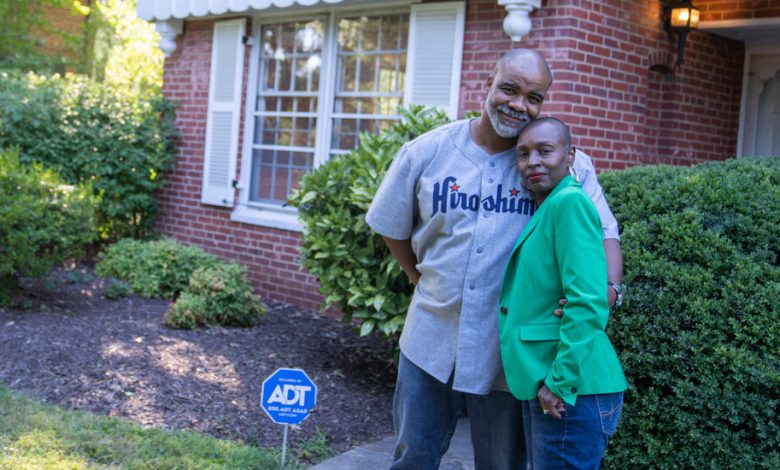Shani Mott, Black Studies Scholar Who Examined Power All Around Her, Dies at 47

Shani Mott, a scholar of Black studies at Johns Hopkins University whose examinations of race and power in America extended beyond the classroom to her employer, her city and even her own home, has died in Baltimore. She was 47.
She died of adrenal cancer on March 12, said her husband, Nathan Connolly, a professor of history at Johns Hopkins.
Though Dr. Mott spent her career in some of academia’s elite spaces, she was firmly committed to the idea that scholarship should be grounded and tangible, not succumbing to ivory tower abstraction. She encouraged students to turn a critical eye to their own backgrounds and to the realities of the world around them. In a city like Baltimore, with its complicated and often cruel racial history, there was plenty to scrutinize.
“How do we think about what we’re doing and how it relates to a city like Baltimore?” is how Minkah Makalani, the director of the university’s Center for Africana Studies, described some of the questions that drove Dr. Mott’s work. “There was this kind of demanding intellectual curiosity that she had that she brought to everything that really pushed the conversation and required that people think about what we’re doing in more tangible ways.”
Her research focused on American books both popular and literary, and how they revealed the kind of conversation about race that was allowed by the publishing industry and other cultural gatekeepers. This work connected to a larger theme of her scholarship: how big institutions determine how race is discussed and experienced in America.
As an active member of the Johns Hopkins faculty, she pointedly explored the ways the university engaged, or did not engage, with its own workers and the majority Black city in which it sits. In 2018 and 2019, Dr. Mott was a principal investigator for the Housing Our Story project, which interviewed Black staff workers at Johns Hopkins whose voices had not been included in the campus archives.
